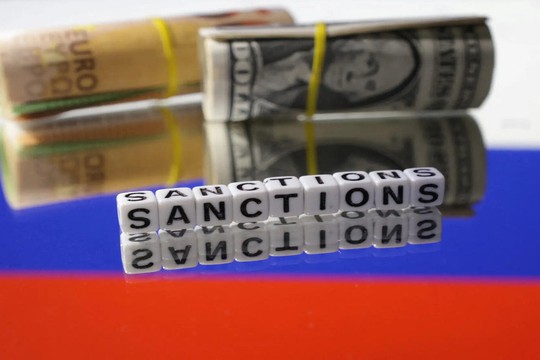Pic.: ‘The Economic Times’
Lawyers report interest in structuring activities to allow restart of trading with Russian entities: “There is a lot of money to be made!”
Commodity traders, insurers and shipping groups are among western companies approaching lawyers for advice on how to restart trading with Russia, in preparation for a potential lifting of US sanctions on Moscow, notes ‘The Financial Times’.
US President Donald Trump’s pursuit of a rapprochement with Moscow has raised the once-unthinkable possibility that some restrictions could be relaxed.
In response, companies have been asking how they might structure their activities to allow them to restore trading with Russian entities, according to legal advisers, particularly if the US eases its sanctions on Moscow but EU and UK restrictions remain in place.“The bifurcation of the US and Europe is a major issue for business at the moment,” said Sam Tate, global head of regulatory and investigations at law firm Clyde & Co. “Some companies are planning for this change and what it means for their business and what they can do to prepare for it,” he said.
Daniel Martin, a partner and sanctions specialist at HFW, said that historically, western companies had designed their sanctions policies to comply with US measures, which were almost always the most restrictive. Clients were now asking whether they needed to redesign those programmes to align in the first instance with Europe, given the more aggressive stance on Russia of the EU and the UK.
Many companies have financing agreements that require them to comply with all US, EU and UK sanctions, while insurers could also be reluctant to provide cover for businesses looking to re-engage with Russia.
Leigh Hansson, a partner in the global regulatory enforcement group at law firm Reed Smith, said most multinational companies would still be constrained by EU and UK sanctions even if the US started to ease restrictions on trading with Russian entities.
Theoretically, European companies could seek to set up US units, staffed with non-Europeans, to take advantage of more permissive US rules, HFW’s Martin said. But that would be costly and only worthwhile if the commercial opportunity was perceived to be significant and long-term. “You would have to ringfence it from all UK, EU support — whether that’s legal, compliance, insurance, risk, finance,” he added.
Companies in Asia or the Middle East were more likely to take advantage of an easing of US sanctions by expanding already existing Russian business, according to Hansson. “The same companies that have been very aggressive in the past few years will continue to do so,” he said. “They might be emboldened by this. There is a lot of money to be made.”
read more in our Telegram-channel https://t.me/The_International_Affairs

 11:52 06.05.2025 •
11:52 06.05.2025 •























